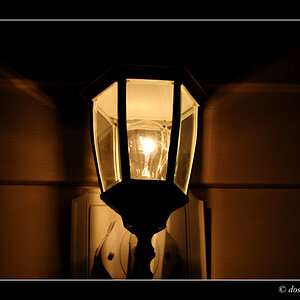- Joined
- Dec 11, 2006
- Messages
- 18,743
- Reaction score
- 8,047
- Location
- Mid-Atlantic US
- Website
- www.lewlortonphoto.com
- Can others edit my Photos
- Photos NOT OK to edit
I was looking at a book entitled 'The Golden Age of British Photography 1839-1900 and I went from page to page trying to see the greatness. What I saw was images that conquered the technical obstacles of the age but, compared to the easy technical perfection that is attainable now, the pictures were not exciting or interesting.
After judging a fair amount in the local camera clubs, I grew to accept that the average digital images were inevitably 'better' than slide images. We, I, would see images taken on film and printed in the darkroom and accept less technical achievement than would be accepted or required in a digital image. Film got points both because of the effort and technical obstacles conquered and because of the nostalgia component.
But, is the technical issue important in looking at art? When we see a miniature town constructed of matches, we marvel at the tenacity of this technical achievement; it is a wonder of craftsmanship not art.
We are now in the Golden Age of Photography. Technical barriers are low if not gone and the road is comparably easy for the eye and vision to create. The problem is not the achieving but the flood of work that hides or even drowns the possible best of it.
We are in the golden age of photography but the most difficult problem is how to find and elevate the greats of this era.
After judging a fair amount in the local camera clubs, I grew to accept that the average digital images were inevitably 'better' than slide images. We, I, would see images taken on film and printed in the darkroom and accept less technical achievement than would be accepted or required in a digital image. Film got points both because of the effort and technical obstacles conquered and because of the nostalgia component.
But, is the technical issue important in looking at art? When we see a miniature town constructed of matches, we marvel at the tenacity of this technical achievement; it is a wonder of craftsmanship not art.
We are now in the Golden Age of Photography. Technical barriers are low if not gone and the road is comparably easy for the eye and vision to create. The problem is not the achieving but the flood of work that hides or even drowns the possible best of it.
We are in the golden age of photography but the most difficult problem is how to find and elevate the greats of this era.


![[No title]](/data/xfmg/thumbnail/36/36657-3774cdd7ebbafa5ccac2741386b9949a.jpg?1619737675)


![[No title]](/data/xfmg/thumbnail/39/39498-362f11d9bfd0d9e222faa85b38801745.jpg?1619739056)

![[No title]](/data/xfmg/thumbnail/35/35932-28690c4fc247cf491230e47fc70ebeb5.jpg?1619737235)


![[No title]](/data/xfmg/thumbnail/39/39497-93752210dd49247220721e5ac8c61245.jpg?1619739055)

![[No title]](/data/xfmg/thumbnail/42/42058-8597ac0f687fb4007aa3ca0210936f04.jpg?1619739994)
